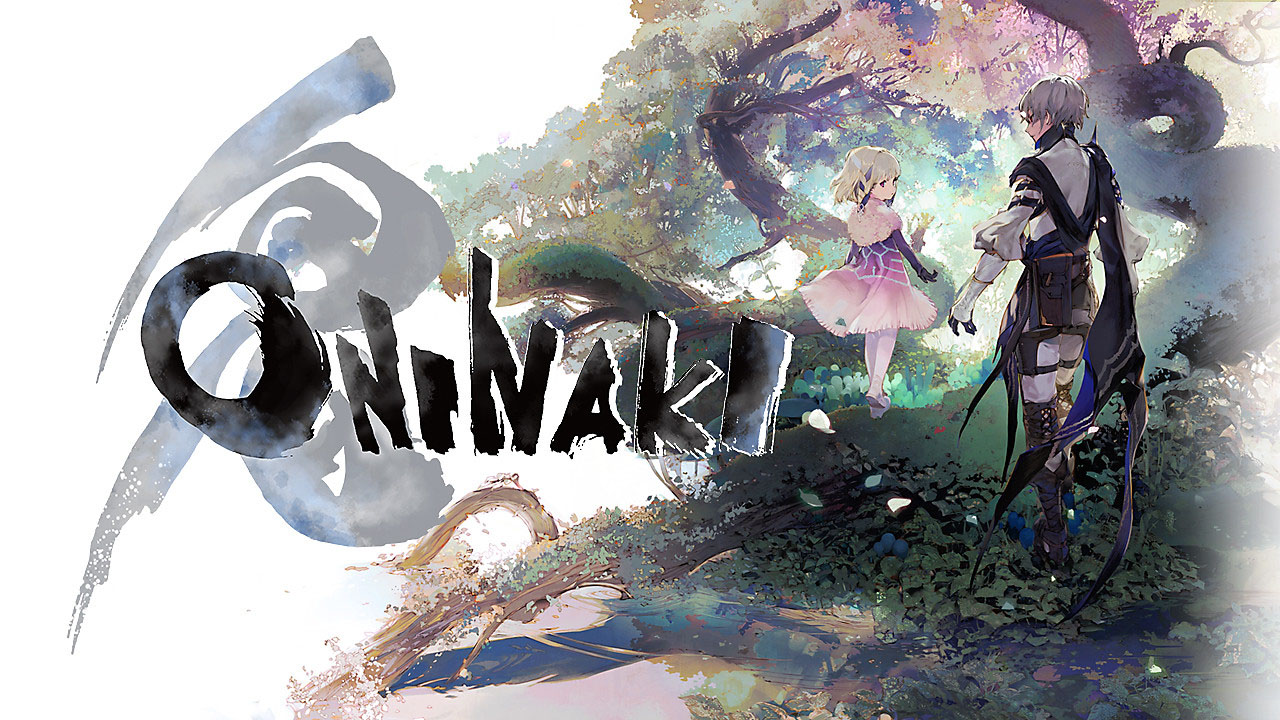
Oninaki is the third offering from Square Enix’s classically focused internal studio Tokyo RPG Factory. The new throwback JRPG is focused entirely on death, loss, and rebirth. The game is their most ambitious title yet, and despite that it still focuses on a smaller world filled with the lost souls and monsters you’ll have to deal with. While Tokyo RPG Factory has put out a few turn-based, orthodox JRPGs that hearken back to the golden era of the genre, their latest is a real-time, action RPG. It also has quite a dark and bleak story, rife with heavy themes. Is their latest RPG worth it? Read on to find out!
Oninaki
Publisher: Square Enix
Developer: Tokyo RPG Factory
Platform: Windows PC, PlayStation 4 (Reviewed), Nintendo Switch
Release Date: August 22nd, 2019
Players: 1
Price: $49.99
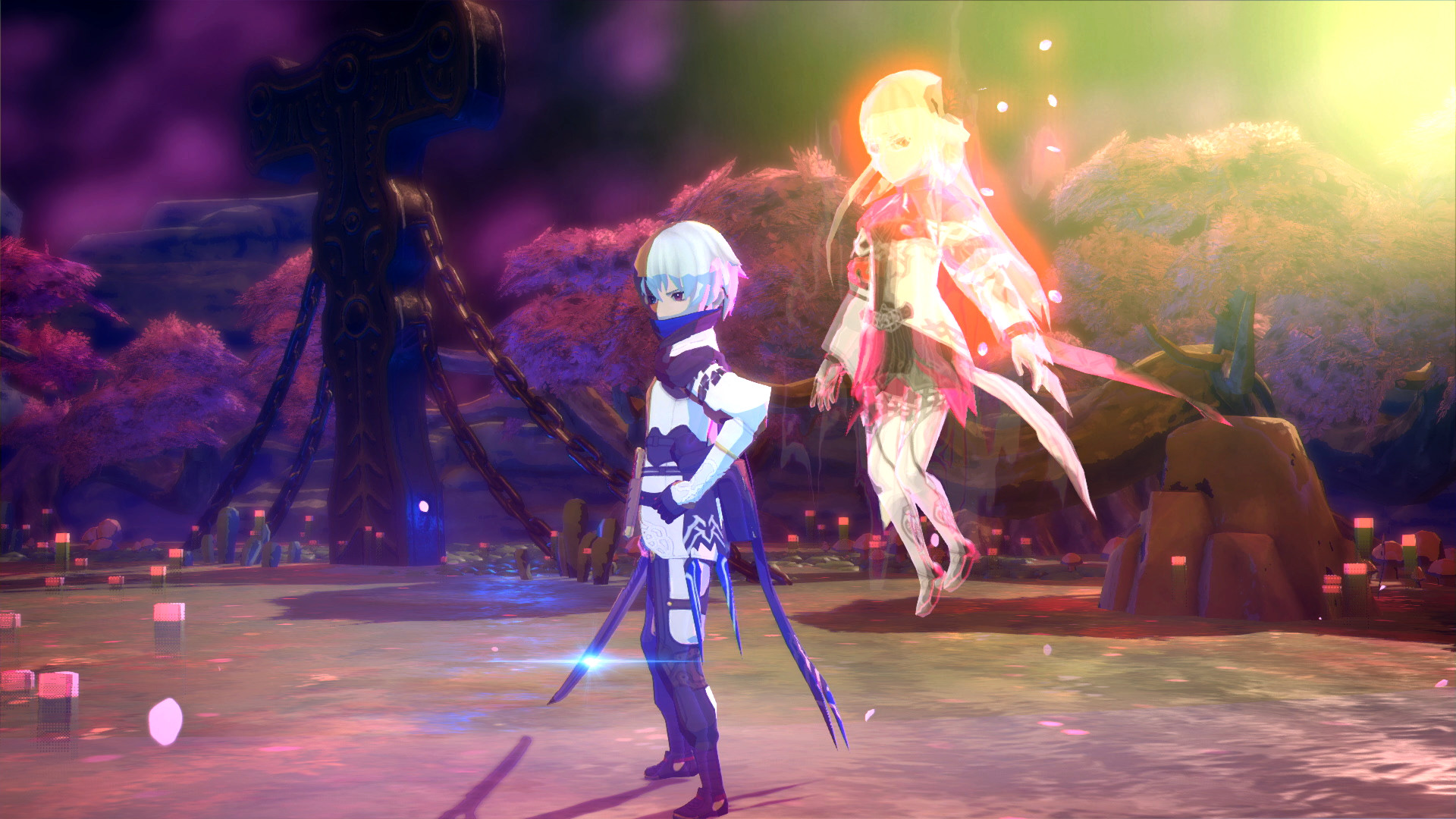
The visuals in Oninaki are definitely charming, sort of a middle ground between chibi-style character designs found in Tokyo RPG Factory’s previous releases, and more traditional, full-sized characters. Everything is sharp, stylish, and fits the dreary and sometimes depressing themes in the game.
The environments can be beautiful and depressing, and the various particle effects that come into play with battle are also nice. Cutscenes are naturally pretty great as well, but character animations can seem a bit stiff, as if there was budget concerns. Performance is solid, though.
I think the biggest visual factor in the game is the stark comparison between the regular, human “living world” and the “beyond,” where lost souls and “Fallen” monsters dwell. While the former is more stylish yet realistic, the latter is more ethereal and dreamy.
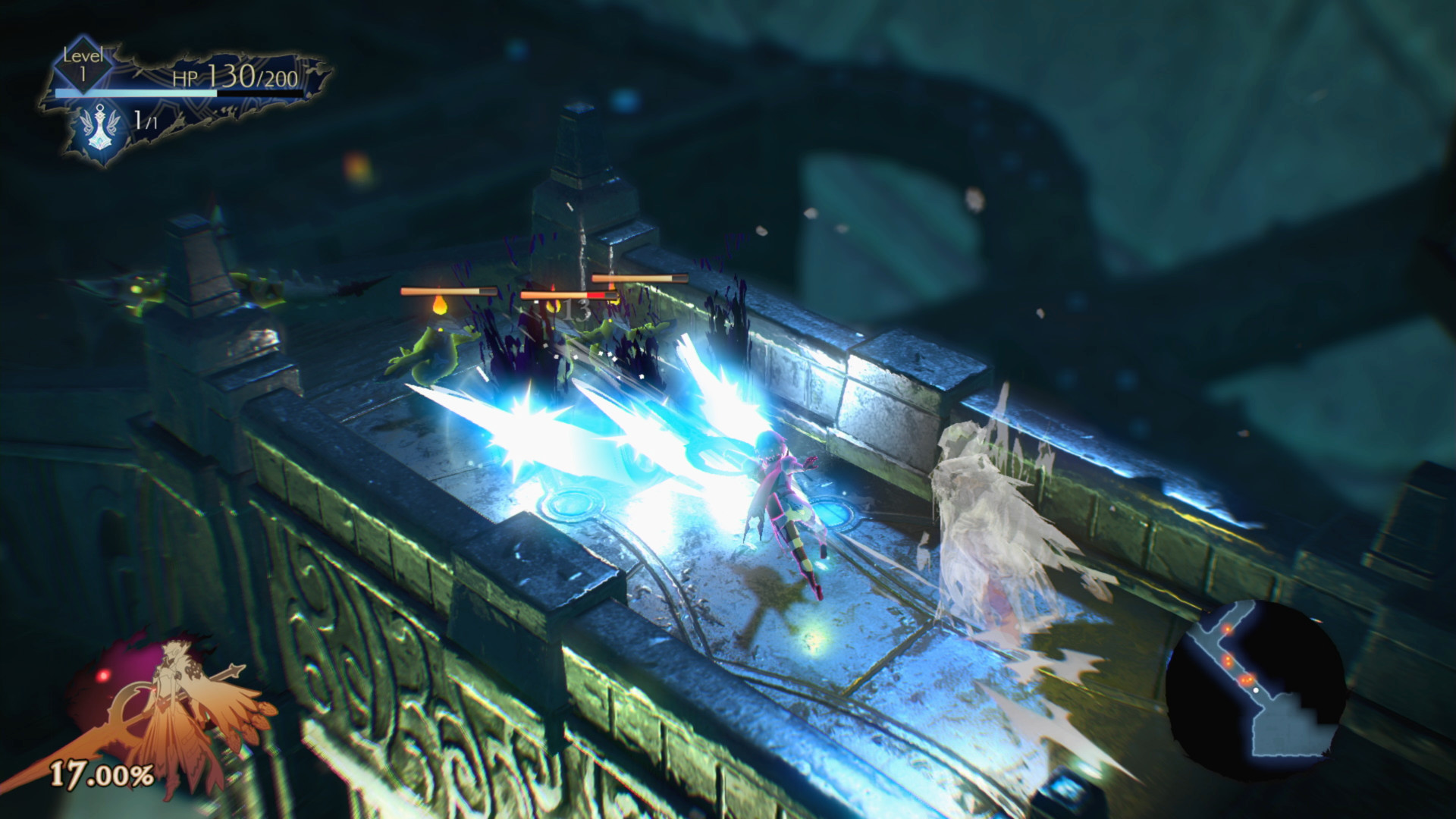
Gameplay in Oninaki is basically your traditional isometric, action RPG. The game drops the turn-based combat seen in previous Tokyo RPG Factory games for a straight up hack and slash affair. You’ll be mostly smashing the attack button to cut through hordes of demonic enemies.
To help keep things from getting too monotonous, you pair with Daemons, lost souls that become powerful weapons for the Watchers. There’s quite a few that you can find and pair with, each of which including their own tragic story and skills you can unlock as you progress and level up.
The collecting and raising of Daemons is probably the most fun you can have in the game, as you get to learn more about them while leveling up and expanding their skills. You can get different weapon styles with various Daemons, like Aisha and her big sword or Dia and her gun fighting style.
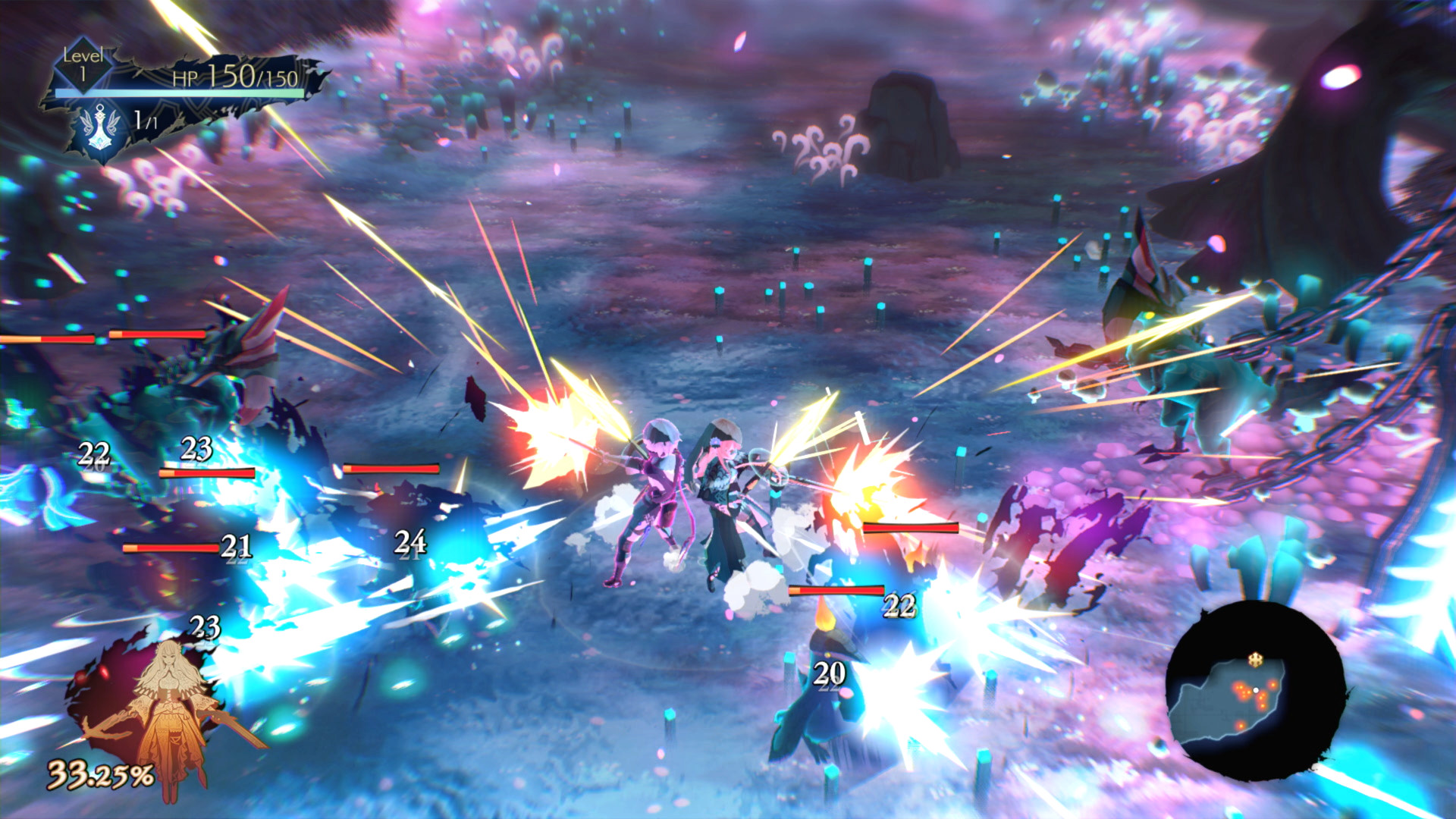
You can even swap out the equipped weapons of the Daemons, and later upgrade them in the town shop. You can also break down old weapons to power up new ones, or equip them with Shadestones to give them bonus passives like better skill damage, or a paralyzing effect.
The aforementioned upgrading and leveling up mechanics are also limited mostly to your Daemons, and it feels somewhat like a partially realized feature. You can really take it or leave it and simply level up your first ‘Mon, or you can really min-max and go to town with the combat.
The affinity mechanic is fun too – as you kill monsters the affinity level between you and your Daemon rises. At 150% you do more damage, but take more as well. You can also discharge this with a “manifest” ability, where your Daemon merges with you, boosting your abilities.
Furthermore, as the protagonist doesn’t really have true progression like the Daemons, the skill trees and effects you can pursue will give you lots of different party match ups or builds, a nice improvement over I Am Setsuna and Lost Sphear. Overall there’s roughly 30 hours or content in the game.
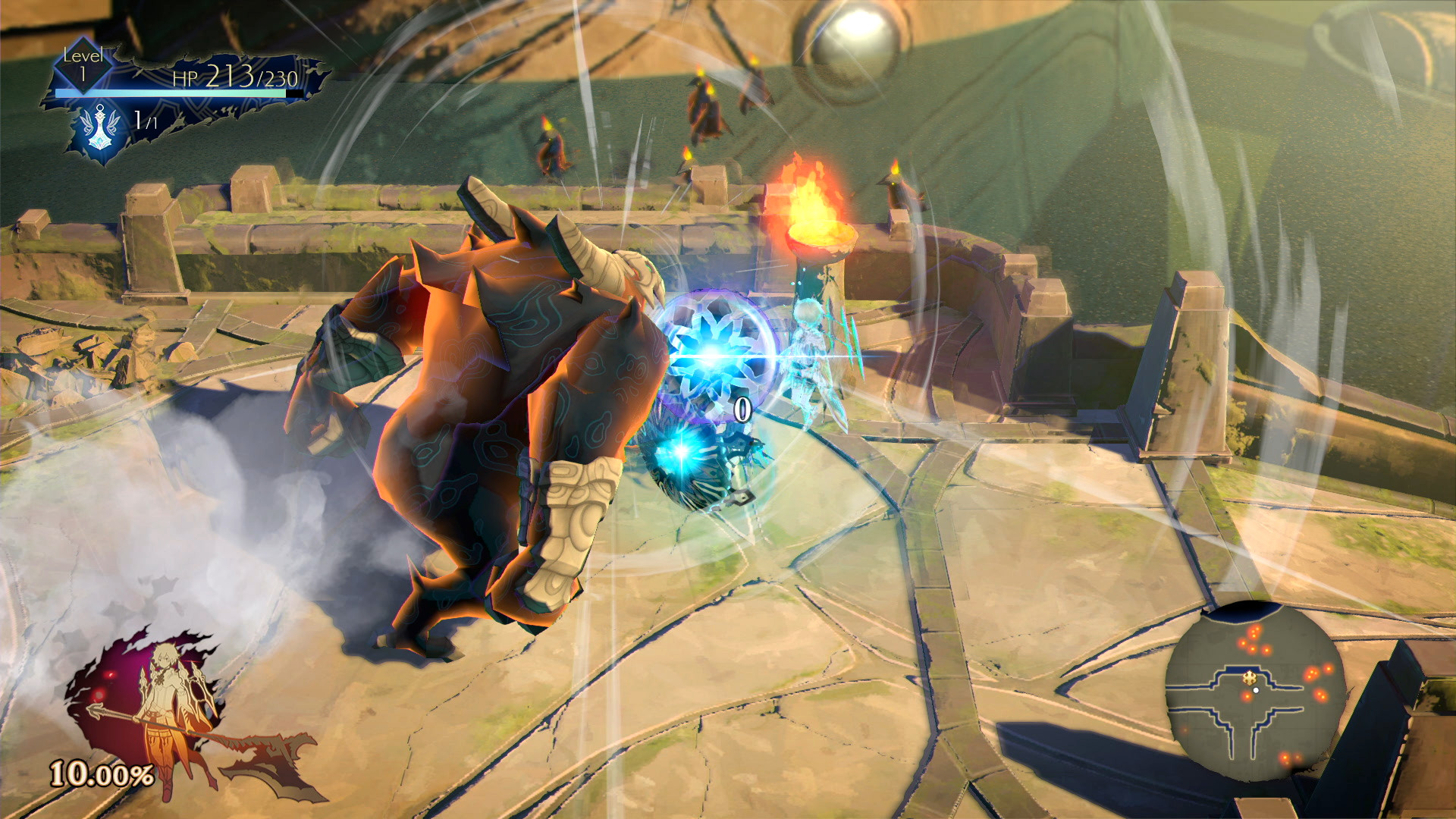
Despite the introduction of different Daemons that you can collect and raise like a certain other ‘Mon filled game, combat can get a bit tiresome. You tend to fight the same enemies and even sometimes bosses repeatedly. Despite the volume of monsters, you can mostly plow through them easily.
So long as you keep leveling up like any proper RPG player, you’ll kind of walk through the entire game with no problems. That is, until you get to the final dungeon, which can take quite awhile to simply progress through. The final boss is also somewhat of a pushover, but I digress.
The story in Oninaki is focused on the protagonist, Kagachi, a Watcher tasked with shepherding the lost souls of the “Beyond” to their next life, and reincarnation. Their entire world, the Inner Kingdom, is obsessed with the concept of reincarnation – and for a good reason.
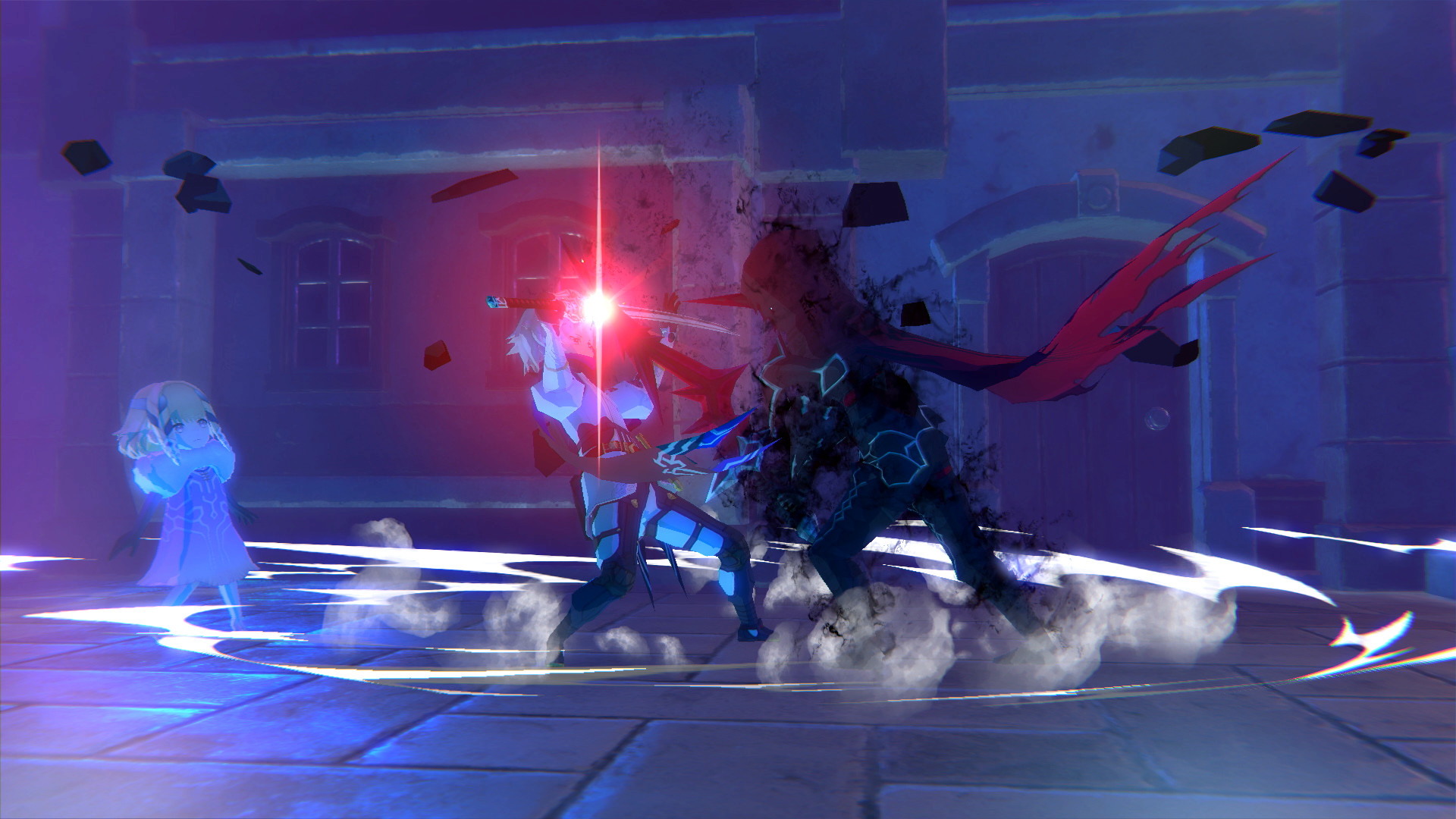
If lost souls remain lost, they can mutate into the “Fallen” monsters, dangerous and violent creatures that will attack Watchers. The entire game is pretty bleak considering the main themes. From the get-go both of the protagonist’s parents die, and he’s told to accept it, and help them move on.
Kagachi is told if the living hold sadness or regret towards the newly deceased, the soul of that loved one will remain in a purgatory like state, trapped and unable to move onto their next life. Watchers come in to help them find peace, and move on to whatever is next.
As with many classical JRPGs, Oninaki can sometimes get melodramatic. The concept of suicide is there, where citizens can apply for “tithing,” a nod to the old practice of having earnings taxed to support the Church. Instead of a tax, if approved they help you kill yourself and be reincarnated earlier.
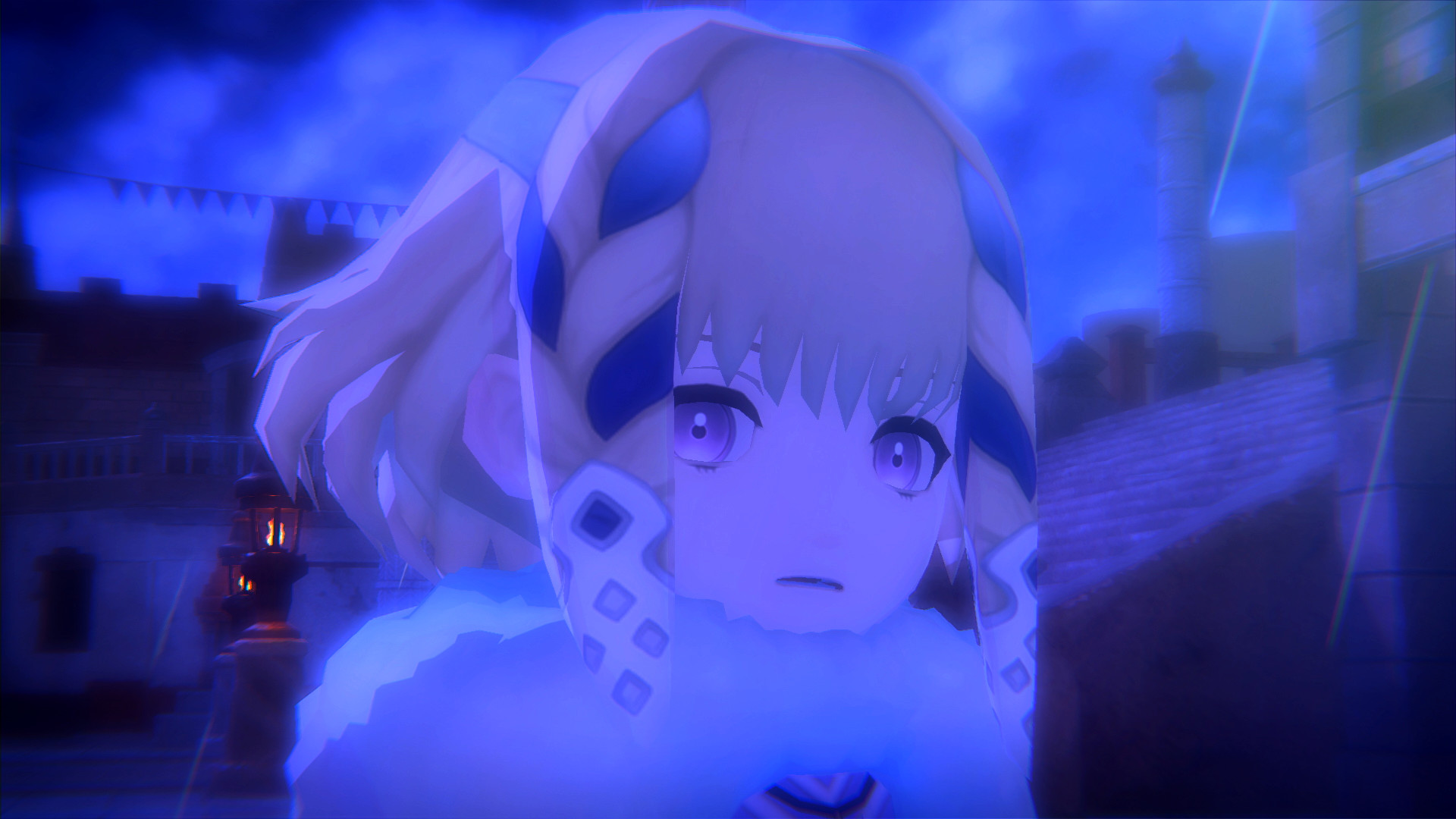
Without spoiling key plot points, a cult begins to get popular in the game, encouraging their followers to partake in killing themselves. This naturally creates a conundrum for Kagachi and the Watchers, as they’ll have more souls to deal with. Their goal becomes finding the leader of the cult.
Kagachi is a pretty unlikeable and rude protagonist, and I guess it makes sense he’s like that the more you see of his world. Even as you walk the in-game streets, you’ll encounter NPCs talking about their hopes for the next life, while some are concerned with the bleakness of the current one.
This existential dread and fear is a key tenet to the entire game, and it shows. Like him or hate him, Kagachi is pretty much fed up with his way of life, and seems to just do his duties with no feeling. I think there may be too much going on with the story, so things may get befuddled, or forgettable.
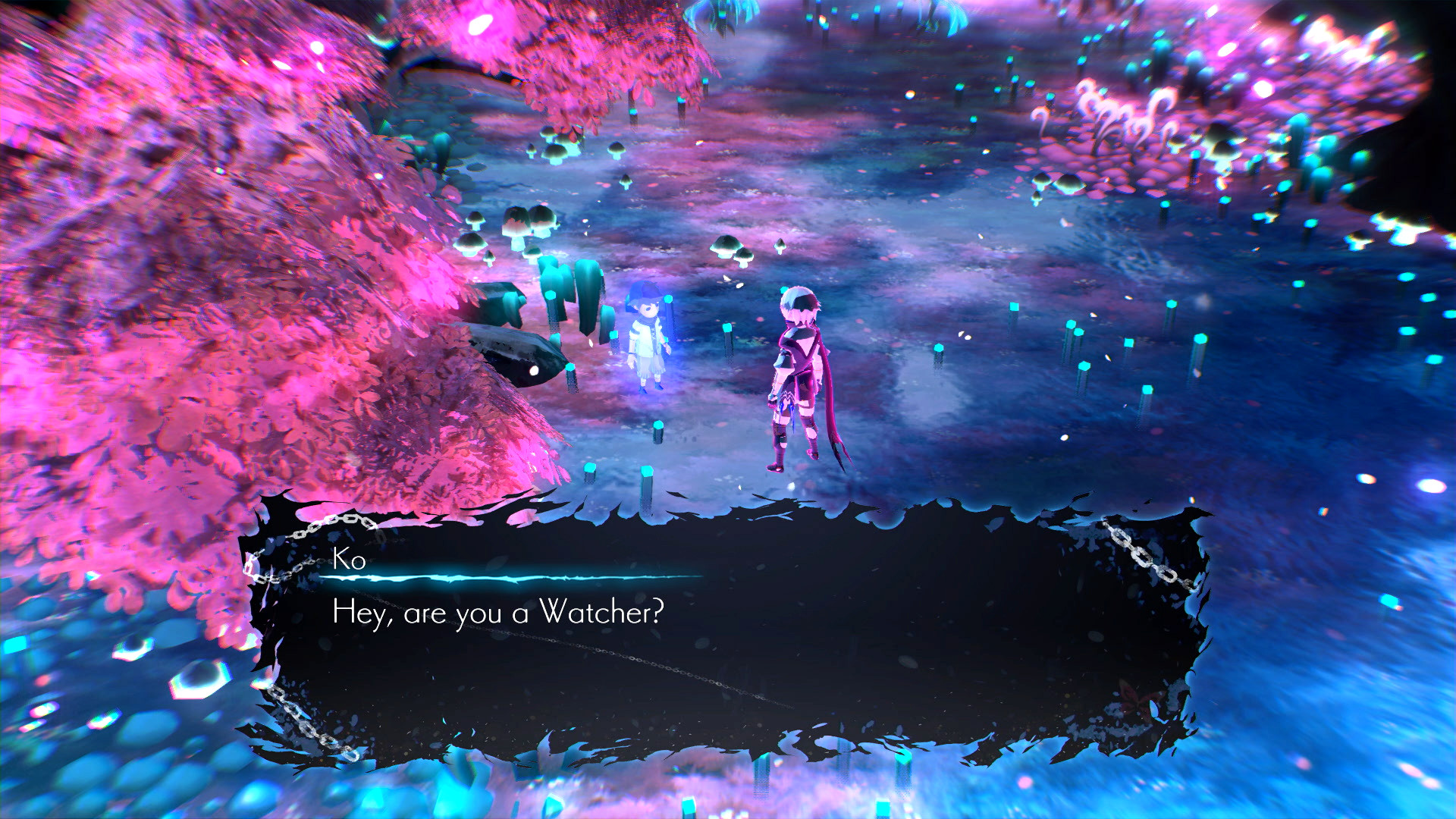
I think not enough time is given to really heavy themes of death, loss, suicide, faith, and piety, making those themes feel a bit hollow. I know the game probably didn’t want to get too deep into it, but a bit more exploration of those moments would have only helped the story and characters.
The soundtrack in Oninaki is absolutely gorgeous and worth listening to simply for the music and themes alone. I really couldn’t get enough of the various themes and battle music even. Every track is really a treat and simply highlight the overly dramatic themes of the story as well.
Voicework is typically short, brief audio blips for the beginning of sentences between characters, with some fully voiced dialogue here and there for more dramatic segments. It’s pretty good overall, but I would have liked a bit more full voice work in non-cutscene moments too.
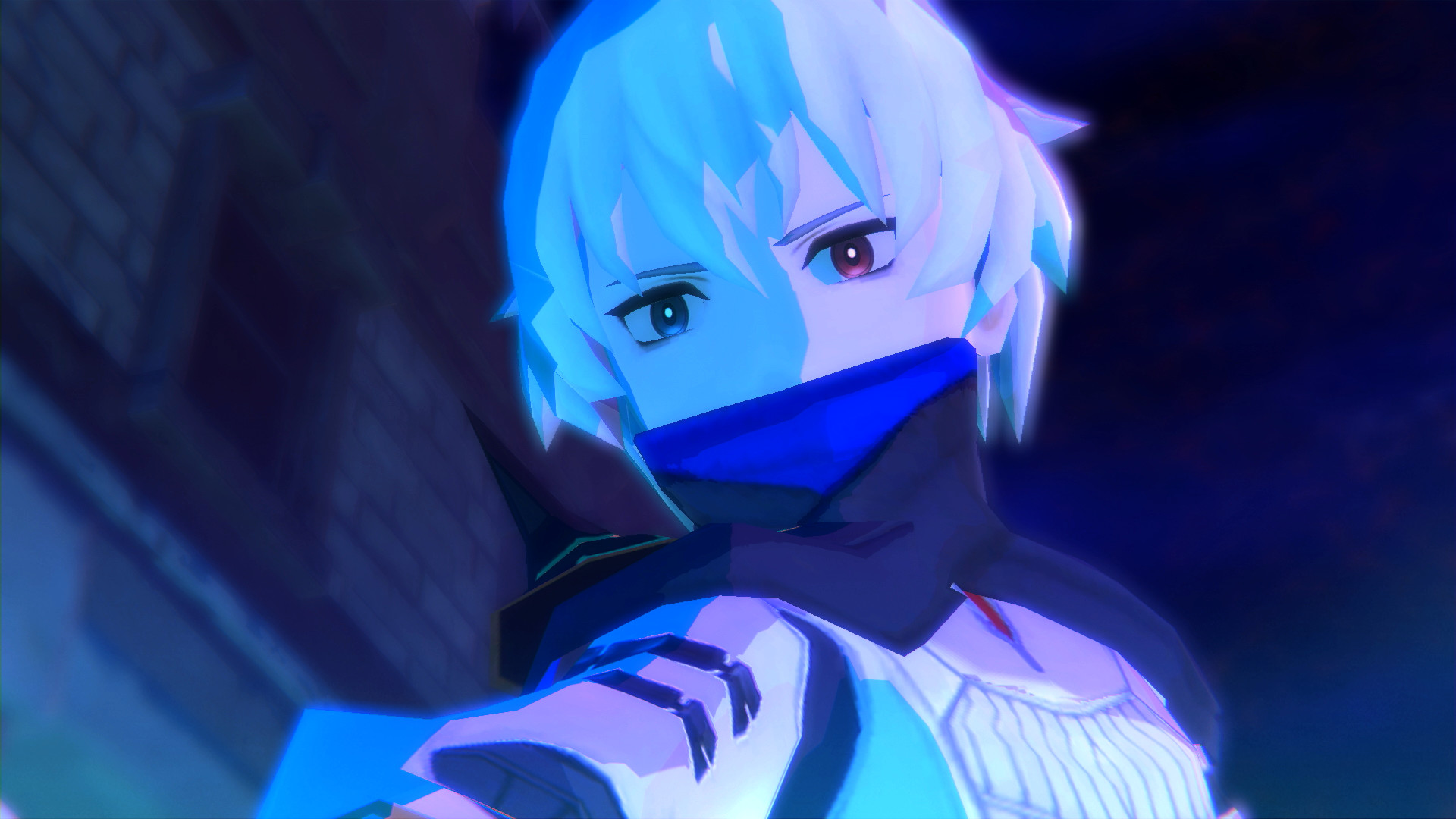
While I may have some issues with Oninaki when it comes to its combat and the various themes the characters experience in that bleak world, the game is overall an improvement over Tokyo RPG Factory’s previous outings. There could have also been some better narrative designs.
Oninaki is an enjoyable RPG if you’re looking for a melodramatic hack-and-slash RPG from yesteryear, and if you properly explore its Daemon mechanics. The game may have some missteps, but I think Tokyo RPG Factory could really shine with more time and a bigger budget.
Oninaki was reviewed on PlayStation 4 using a review copy provided by Square Enix. You can find additional information about Niche Gamer’s review/ethics policy here.